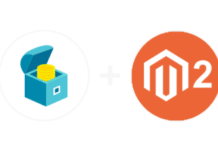Last Updated on December 30, 2025 by Rida Gul
DevOps is a software development and operations methodology that emphasizes communication, collaboration, and automation to speed up the development process. It is widely used by organizations in the software industry.
A DevOps Monitoring Service is a tool that can help you monitor your infrastructure. It provides information about your servers, applications, and networks across various metrics such as performance, availability, and security. You can quickly identify if there are any problems with your infrastructure or if it needs maintenance or updates to improve its performance.
Table of Contents
What is a DevOps Monitoring Service?
DevOps is a methodology that helps in the development, deployment and operation of applications. It is a culture of collaboration with developers and operations teams working together to achieve a common goal.
DevOps Monitoring Services are tools that help in monitoring the performance of an application or system. They provide metrics on how well the application or system is performing in terms of availability, performance, scalability and response time.
Tools like Ansible provide you with all the necessary features to monitor your application or system’s performance.
Why You Should Use a DevOps Monitoring Service
It is an approach to software development and delivery that emphasizes collaboration and communication between software developers and IT operations. In the past, this meant that developers would have to manage their own infrastructure, but with the widespread adoption of DevOps practices, it has become much easier for developers to focus on building software while IT operations take care of the infrastructure.
It has become a popular approach in recent years due to its benefits in terms of speed and efficiency. The most significant benefit is that DevOps allows for continuous deployment – which means that software can be deployed at any time without any downtime.
Automated monitoring tools are an integral part of it, because they allow for continuous deployment without any downtime. These tools allow teams to detect problems before they occur so that fixes can be made quickly before anything goes wrong.The continuous integration tool Jenkins allows teams to deploy changes in a pull request. The tool then scans the code for vulnerabilities and deficiency, and can automatically fix the issues on the fly. This increases productivity because new features are released as soon as they’re ready, rather than when they’re complete.Once these tools have been configured properly
What are the Best DevOps Support and Maintenance Services?
It Support and Maintenance Services by https://itoutposts.com/devops-support-and-maintenance-services/ are gaining popularity in the market. They offer a wide range of services such as application development, development support, infrastructure management, and more.
The best DevOps Support and Maintenance Services include:
- Managed IT Services: These companies provide managed services which include cloud computing, server management, and software installation.
- Onsite DevOps Support: These companies offer onsite services which includes hands-on support for developers by offering training sessions on various technologies including coding languages such as Python, Ruby, Node.js, JavaScript and more.
- Remote DevOps Support: These companies offer remote services which include webinars to teach developers on how to use specific technologies such as Kubernetes or Docker containers.
if you want to know about Digital Workspace Monitoring then please visit our Business Category.



























